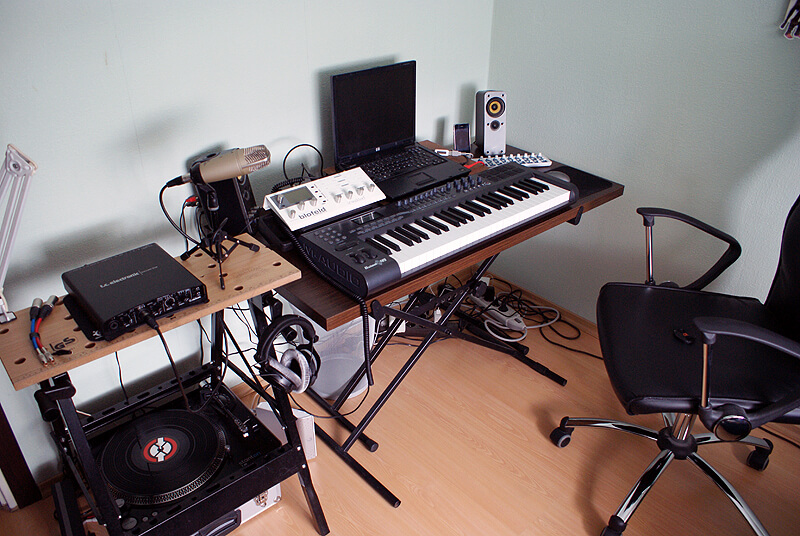We’ve run a number of articles in the past about insurance coverage for working musicians. Mainly these have dealt with avoiding insurance claims while performing live on tour or at other live events, and how to assess insurance policy needs for your band.
READ: 5 Ways to Mitigate Risk & Avoid Insurance Claims on the Road
READ: 5 Things Your Band Needs to Know About Liability Insurance
READ: Protect Your Home Studio With These Insurance Tips
One of the main questions we’ve received recently, though, is a pretty basic one. And that deals with the exact nature of liability insurance, and how it differs from property insurance you might already have.
So, let’s break down the basics. As always, for more detailed information, please consult an insurance professional in your area – we recommend the good folks at K&K Insurance, who’ve helped out countless artists on the road.
THE KEY DIFFERENCE BETWEEN LIABILITY INSURANCE AND PROPERTY INSURANCE
What it boils down to is (in the most basic terms) stuff vs. actions. With property insurance, whether it’s a variant of a homeowner’s policy, a renter’s policy, or other supplemental insurance products, the goal is to protect your possessions (in the case of musicians, your gear), so that you can be made whole again (i.e. get replacement stuff) if the unthinkable happens.
Depending on your policy, which we recommend you go over with your provider so you know exactly what’s covered, the unthinkable here would hopefully be a “coverable event” like, perhaps, a fire, or theft, or someone else vandalizing your gear. But the thing to remember is that these coverable events are likely not caused by you, but rather outside forces.
With a liability insurance policy, the main difference is that it’s based on actions YOU take that could result in a lawsuit filed against you. Here, we’re talking about things like damages you or your party caused to a venue through negligent or reckless (no, not you, right?) behaviors. So, let’s say you’ve landed a cool gig and your roadies are less-than-careful during load-in and cause damages to the walls in the hallway leading to the stage. Or perhaps you’ve caused bodily injury to someone during the course of the show. Well, now you’ve entered the arena of liability insurance, because the venue or injured party may come after you (in the form of a lawsuit) for damages.
So again, it’s stuff vs. actions, or possessions vs. lawsuits. Liability means you could be “liable” or responsible for actions (or non-actions) on your part that led to damages occurring. Property insurance covers your stuff, not someone or some entity trying to sue you for something you did.
WHAT TO LOOK FOR IN AN INSURANCE PROVIDER
We asked Lorena Hatfield, Marketing Resources Manager for K&K Insurance, what artists should look for in an insurance provider when it comes to liability coverage, and she had this to say:
“When choosing an insurance provider, always ask about the financial stability of the carrier; a high rating (A or better) by an independent rating company such as A.M. Best Company is the safest choice. Also, choosing a carrier that is “admitted” (licensed) is preferable because choosing an insurance company that is non-admitted (called surplus lines) may require you to pay extra fees or taxes.
Of course, experience is also a factor. Organizations familiar with the unique risks associated with the entertainment industry will be able to accurately price coverage and more importantly, provide prompt and reliable claims handling and resolution services. You may also want to look for convenient services such as the ability to apply and purchase coverage online, as opposed to completing a paper application that must be mailed and approved before coverage is in force.”
WHAT YOUR EXISTING POLICY MIGHT NOT COVER
Rob Tavaglione, owner of Catalyst Recording in Charlotte NC, offered up this piece of information in his article “Protect Your Home Studio With These Insurance Tips”:
“Most of us can wrap a particular instrument into our homeowner’s or renter’s insurance policies without much difficulty. But musical instruments (and valuable electronics) are typically covered only up to a certain moderate value and particularly valuable pieces require itemization … such costs are not terribly attractive (and can easily cost as much as the rest of the entire policy). Sometimes our property coverage extends in part to our cars and vehicles, but an oddly named (and typically expensive) “inland marine policy” is needed for complete coverage while belongings are in-transit or away from home. Most importantly, homeowner’s or renter’s property coverage does not cover business property or professional usage…
A once sparse field of insurers has grown considerably and I now found ample insurance choices for studios of all sizes, including equipment property coverage, actual property coverage and liability coverage. Most policies covered gear and instruments, although some required itemizing of instruments valued over $5k. Some insurers wanted exacting lists of items, serial numbers, their replacement value and insisted on covering the value of the entire collection (no partial coverage). Some insurers offered liability and property together, while others allowed one or the other. Only a few rare instrument policies covered flooding, which is a completely separate issue (typically) in the world of insurance.”

In the end, the type of policy you require will be based on your specific needs, so we urge you to consult professionals with any questions when it comes time for you to buy coverage. Stay safe out there!

